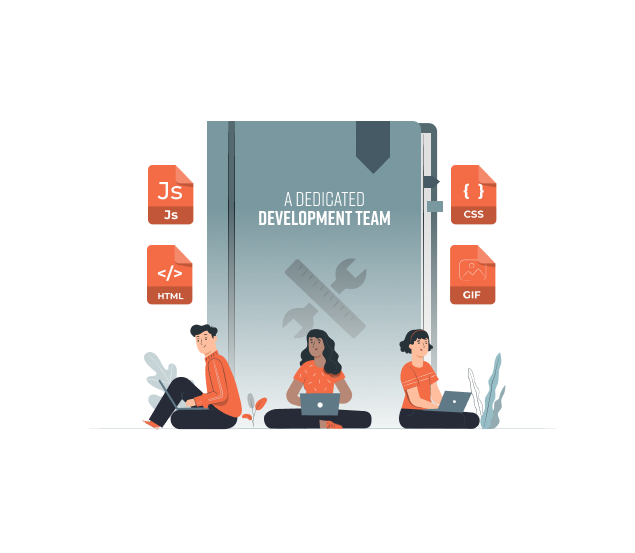Are you a tech startup founder? Or an aspiring one?
First of all, kudos on your decision to stray off the beaten path. An entrepreneurial spirit is hard to come by and hard to maintain, which means you already know the 20th tip we will give you in this blog.
Being a founder is no mean feat, especially being a tech startup founder in a cut-throat marketplace. We won’t mince our words because you need to be prepared. Being a tech startup’s founder comes with many responsibilities, and you will need to be prepared to put your regular life on hold for the foreseeable future.
Get ready for 2 AM calls, copious amounts of coffee, and you might as well bid your social life adieu. Yup, you read that right. Shocked? Keep reading.
To be honest, the late-night calls and the early morning disturbances might be the least of your worries. There will be bills that need to be paid before you make a profit, employees that need to be motivated the right way, and investors that you will have to try hard to woo.
But don’t worry, we have your back! And we did quite a bit of initial research for you.
We talked to a few tech startup founders and asked them about the most significant challenges they faced when building their company. What were the risks that they faced? How did they handle those risks? What advice would they have to give to other tech startup founders who have travelled the path less taken?
We noted down their responses and prepared an exhaustive list of tips for you to keep in mind as you start your journey as a startup founder.
As we already mentioned, you have the entrepreneurial spirit that should be the core factor driving tech startup founders.
Now, stay with us to find out the other 19!
1. Let Continuous Research be Your Guiding Light

Product development starts and ends with thorough research. You need to ensure that you don’t limit your research to just the ideation stage. Carry it over to every single phase of your product development cycle. While developing a technical product, you must keep your end-user in mind. And you can know your audience only through extensive research.
Who is your target audience? What sort of product do they need? How can you modify your product to increase your end-user satisfaction? Implementing feedback loops and working with the suggestions you get will also require research. See where we’re getting at?
Technology is evolving, and so should you, especially if you’re the tech startup founder. You and your team need to see continuous learning as an essential part of your development process and keep abreast of the technological advancements in your field. This will help you incorporate new and feasible innovations into your product, which will result in an improved end product.
Suggested Read: 14 Sure Signs That You Have A Great Business Idea.
2. Create Your Business Plan Around Your Business Model
Before you start your product development, you must get all your business ducks in a row.
Start with identifying a business model for your tech startup based on the research you have done. It’s essential to decide your business model carefully because your revenue generation and subsequent planning will depend on your chosen model.
What sort of a business model would work best for you? Is it a subscription model? A freemium model? A marketplace model? Or perhaps a unique model that combines tried and tested business models would be ideal for your startup?
Once you finalise a business model for your startup, it’s time for you to create a business plan that revolves around your business model. It’s okay if you won’t follow your plan to the T, but it is crucial to have a plan that gives your startup a direction to move in.
Leave no loose ends when it comes to developing the perfect business plan. It should have strategies for every aspect of your business, from the development deadlines and finances to the product launch and marketing.
It will help if you think of your startup product launch as a battle. You need to develop a good battle plan before you lead your troops out to the field.
3. Take Your Time with New Hires

You need to build your team slowly and steadily, much like the fabled tortoise. There’s no rush to onboard your entire team in one hiring spree. Your hiring process should be about finding the best fit for your company and organisational goals, and not just filling positions for the sake of it.
Think of your product development process as a movie release. It’s not like you can’t start the movie before all the seats in the theatre are filled. Let people trickle in at their own pace while the show goes on.
Impulsive or desperate hires can affect your team’s overall productivity and cause business continuity disruptions in the future. You also need to consider the financial implications of rehiring or replacing team members if they turn out to be unfit for the job. Notice periods, severance packages, and a bad reputation for low employee retention rates are all side effects of bad hires.
Test each of your potential candidates with multiple rounds of interviews and tasks to help them prove their worth before you hire them. Remember that you are picking the warriors who will have your back once the wars start. So, keep an eye out for individuals who are not only skilled and creative but also passionate team players who are stickers for deadlines and ready to commit to your company goals.
Check our blog, if you are keen on hiring an app developer.
4. Establish a Management Hierarchy from the Get-Go
Think of your team as an orchestra. Your startup product is your final melody. And if your project management process is the opera, then your management team are the conductors. If they don’t wave their batons just right, your team’s melodies can turn into chaos in an instant.
You need to establish a hierarchy from the start, so as to avoid confusion in the future. Without properly established designations and coordination, your team can fall apart and your melodies can turn into cacophonies.
Get back to the battle you were waging. Your troops will need directions. They need commanders, corporals, and sergeants. And each one must know his or her own role well to be able to guide your project to victory.
Who are the key persons in your organisation? Who are the main stakeholders who will be held accountable for your project success? And most importantly, who reports to whom? Who is in charge of escalating issues? Whose responsibility is to bring the different teams together under one unified umbrella?
Conflicts between stakeholders may prove detrimental to your project progress. It can also bring down the morale of your team and affect their individual performances. Defining your company’s hierarchy will help you avoid potential conflict of interest. It will also nullify the chances of ego trips between stakeholders, thus helping your product development and business operations to run smoothly.
5. Come Up With Marketing and Distribution Strategies Before You Start Development

A common mistake that tech startup founders make is waiting till they have a minimum viable product before they think of marketing. If you are in the same boat, dock it and get out immediately. It’s important to figure out your distribution channels and your marketing strategies before you take your product development any further.
Now, you might be wondering if this is like counting your chickens before they hatch. It’s not, really. It’s more like being hopeful that your eggs are reliable and preparing a coop for some healthy, happy chicklets!
Know your audience and understand the channels through which you can reach them once your product is ready.
If you have already identified your distribution channels and your marketing strategies, you can make sure that your product development is an iterative process. This way, you’ll also have a backup plan if your initial battle plan doesn’t survive the first contact with the enemy!
6. Make Sure You Have At Least One Technical Founder
If you do not come from a technical background, that’s okay. But, as a technology startup, you need at least one founder with a technical background.
To run a startup smoothly, you will need a founder who has the technical knowledge required to understand your technical product like the back of their hands. They will be able to handle the technical aspects of your business while you run the operational aspects. They will also be able to help facilitate better coordination between the different teams that work for you.
Technical founders can make the whole online to offline transition seamless for your startup. They can make sure that your company utilities its technical resources the right way and avoid wastage. It’s also a fact that investors are more likely to invest with you if you have a technical founder to back up your business idea.
If you’re still not convinced that you need a technical founder for your business, read more about how technical co-founders can benefit your business.
7. Implement Business Systems to Reinforce Your Startup’s Sustainability
What exactly are business systems and why is it so important that you need to implement proper business systems for your startup?
Business systems are strategies, methods, and procedures that are implemented to ensure that your startup operations are proper and optimised for efficiency. They can be independent of each other, but they work together as a cohesive unit to enable business growth.
Well implemented business systems make sure that your business is independent of you or any other stakeholders. This is important as your business should always be able to function even if some key persons or stakeholders need a long leave of absence.
While your business systems may be independent of each other, you must ensure that they all complement each other.
8. Utilise Equity as a Service to Guarantee a Win-Win for All

One of the greatest advantages of having a startup business is that you can use equity shares as a currency. This means you can engage services from your employees before you start making profits. When you give an employee equity in exchange for their work, they will automatically become stakeholders in your tech startup.
Employees who are stakeholders will be more motivated, as your startup’s success is now their responsibility as well. The more you make in terms of profits, the more it will benefit your employee financially as time progresses.
You can also trade equity shares with investors in exchange for financial investments. Investors typically take equity shares that can range anywhere from 10 to 80 %, depending on the initial capital they invest with your startup.
9. Take the Word “No” Out of Your Vocabulary
This doesn’t mean you need to say yes if someone asks you to give up and surrender. But, reserve your no’s for things that matter.
Start saying yes to opportunities. No opportunity is too small to pay attention to, and no opportunity is too big to be out of your league.
You need to keep an open mind when you come across new turning points in your startup journey. Consider every aspect carefully before you choose a direction to move in.
Each opportunity that you come across will be unique and will have the power to shape the future of your startup. So, you must also understand how to prioritise your choices. Do not simply say yes to anything right off the bat. But don’t dismiss it either. Imbibe, analyse, and then make an informed choice.
10. Dig an Economic Moat Around Your Intellectual Properties

If Warren Buffet tells you that doing so-and-so will benefit your company, you wouldn’t think twice about doing it, would you? Well, he popularised the concept of economic moats, and we’re telling you that building an economic moat for your startup is important.
Moats are trenches dug around castles in olden times to protect the lives and wealth of the castle owners. They were usually filled with water, and sometimes even dangerous water creatures to deter enemies from crossing them. If enemies tried to swim across a moat, they just made themselves slow-moving and easy targets.
An economic moat does pretty much the same for your business. It protects your intellectual properties and revenue generation strategies from your competition. Patenting your business ideas and getting your startup trademarked will help you keep your economic assets to yourself.
11. Learn to Sell if You’re not a Natural Salesperson
Selling is part and parcel of being in the tech startup business. If you are not a salesperson at heart, you need to invest some time and effort to pick up the basics of selling to your end-users.
Have you heard the expression that a great salesperson can sell ice to Eskimos? Does that sound really hard? It’s not as difficult as one might think, though.
Think outside the box. What if your Eskimo in question was stuck in sunny California and desperately needed a cool drink? Selling him some ice doesn’t sound so hard now, does it? You should practise thinking outside the box, as it is an important virtue of a salesperson.
You should also be mentally prepared to get rejected multiple times, as rejection is a part of learning to sell. This brings us to our next point.
12. Get Ready to Face Rejection. Repeatedly.

Did you know that J.K.Rowling was rejected by twelve different publishers when she tried to sell them the rights to Harry Potter and the Sorcerer’s Stone? A book that has since gone on to sell millions of copies worldwide and got translated into over 80 different languages? Sounds incredible, doesn’t it?
Your tech startup might face multiple rejections, be it from investors or end-users, but you need to take the rejections in your stride and keep trying. You need to have the belief that your products or services are capable of commercial success. As long as you have faith in your startup idea, you will find the necessary will to keep persevering in the face of multiple rejections.
Know the 17 Vital Factors Venture Capitalists Evaluate When Deciding to Invest in Your Startup, and plan accordingly.
13. Know When It’s Time to Move On
You want the best of everything when it comes to your startup. That is understandable. Your startup is your baby and it’s not surprising that you will fuss over the details of all your business processes. But you need to know where to draw the line
For example, when you have spent 4 hours debating the placement of a CTA (Call-to-Action) button with the design team, you must realise that it is time to move forward. Attention to detail is great, but too much attention to too many details hampers your productive progress. Find the right balance.
Some ideas won’t pan out when you try to implement them. Some strategies may not work, no matter how hard you try. Figure out when it’s time to change tack and think of new ideas before your project goes over budget.
You can keep your project innovation realistic and dynamic by engaging in feasibility studies before you try implementations. It is also important to listen to your development team because they will have the knowledge and experience to tell you when you need to let go of some ideas.
14. Be Prepared for Some Very Unusual Contingencies
You might be used to things going according to plan, but you cannot expect that from a startup trying to find its footing in the marketplace. No matter how much you plan and prepare, you are heading out into uncharted waters. There are a lot of trial and error iterative processes involved. As the captain of your tech startup ship, you need to get comfortable with the great unknown.
The unusual risks you face can range anywhere from…we can’t even put limits to it.
Consider this example. You made a bad hire and picked a rotten egg for your team. This team member decides it’s okay to embezzle money from your customers using your startup’s name. By the time you come to know about the fraudulence at play, he’s already managed to hoodwink a sizeable number of your end-users. When confronted, the employee also threatens to commit suicide. How do you deal with this?
Before you laugh it off as a wildly imaginative scenario, we can tell you that this is based on real events. We can also tell you that this is not the most unusual contingency a startup has had to face. So, be prepared to mitigate risks in all shapes and sizes and numbers.
15. Invest Continuously in Your Core Team

This is a fairly simple tip. If your customers are your life-blood, your core team is the backbone of your tech startup.
As a founder, it is your responsibility to be empathetic and caring towards your team members. You must take up the mantle of ensuring their holistic growth because that will automatically improve the output of your startup business as well. Give them a platform to voice their opinions and learn from each other.
Give credit where it’s due and share wins and losses equally to keep your team’s morale strong. Your team needs to evolve continuously to keep up with the growth of your tech startup.
16. Learn to Speak the Language of Your Customers
Forget the technical jargon. It doesn’t do you much good outside conference rooms. Learn to speak the language of your end-users to connect with them properly.
They will be able to give you great feedback on how to improve your product. After all, you’re creating products and services that aim to satisfy your users. Who better tell you what your customers expect from your startup other than the customers themselves?
Learning to communicate effectively with your customers is especially useful once you get to the testing and marketing phases of your product development. As you must already be aware, content drives marketing and you need to create content that your end-users relate to and want to engage with.
17. Stay Connected to Your End Users At All Times
Do not lose sight of the bigger picture in the hustle and bustle of running your tech startup- your end-users. Make it a point to stay connected to your consumer’s art at all times to ensure that they feel comfortable with your company and your products.
You can use your minimum viable product to stay in touch with their needs. Merely telling them you will take suggestions is not enough. Once you get feedback, show them how you’ve incorporated their feedback to improve your offerings.
You can also incentivise them in ways that are beneficial to both parties to inspire brand loyalty. Engage your end-user continuously with blogs, forums, and gamification features.
Also Read: How to Prioritize Features for Your MVP.
18. Don’t Let Your Competition Faze You

You’ll notice that your competition will be high even before you have a viable tech product to offer to the world. Startups are all over the place. Some may even be working towards the same final product as you are. But don’t let that faze you.
Remember that war tactics are not limited to only physical confrontations. Your enemies can play with your mind too, and create illusions that hide the actual strength of their numbers. These deceptive tactics are employed by startups too, to get leverage in the playing field.
Statistically, half of the startups that pop up every year will be gone by next year. A lot of the hype you see around new startups are the result of great marketing. Used well, propaganda can be used to hide incompetence, so you don’t need to let great marketing by your competitors worry you. If you think it’s worth a shot, you can even hire the same team to market your own startup!
Instead, you need to focus on improving your offerings to your end-users. Keep doing competitor research and analysis, but focus most on building yourself up into a company that will soon become a household name.
19. Don’t Forget to Let Loose Once in a While
Startups are notorious for stressful working environments and some days are just longer than others. It won’t be uncommon for you or your teammates to work around the clock to meet committed deadlines. But working all day and all night isn’t sustainable. You need to find the right balance between working and living your life.
Make sure that you set up a good working environment for yourself and your team. Try to make it as fun and interactive as possible, subject to deadlines and work commitments, of course. The less stressed your development team is, the more creative they will be.
You can engage your employees in team bonding exercises for better project results and more productive outcomes. How great would it be if you could combine a no holds barred brainstorming session with a fun pizza night? The ideas will definitely flow, as will good conversations.
You might be trying to change the world, but never forget your priorities.
20. Keep Your Entrepreneurial Spirit Strong!

We know you have an entrepreneurial spirit, and a drive to break free from the 9 to 5 shackles of corporate life. But, will you be able to sustain that strong spirit?
No startup hit the gold overnight, just as no wars were won overnight. You will be faced by many obstacles. You will have to pause and take stock of your situation every once in a while. There will be mountains to climb, and rivers to cross, but don’t let these slow you down.
You also need to introspect occasionally and make sure you stay grounded. Don’t let a few no’s get you down. And don’t let a few yes’s make you get ahead of yourself.
We know it will be hard not to feel overwhelmed at times, but remember that you are not on this journey alone. Pick yourself up, dust yourself off, and march on.
We’re rooting for you!
Conclusion
There are no shortcuts to getting your startup on the map, just as there are no shortcuts to success. It takes a lot of blood, sweat, and grit to carve out your own path in a highly competitive industry. But, trust us, it will be worth it in the end when all your hard work pays off and you finally launch your products to the marketplace!
Play your cards right and you will definitely be able to make a name for yourself and give your brand the right exposure to the right audiences. NeoITO can help you develop products that will bring your vision to life and delight your end-users. We have made it our personal mission to give our clients the best services in the industry and the most value for their money.




![A Study in Software Development Plan [infographic]](https://neoito.com/wp-content/uploads/2023/02/Software-development-plan-Cover-618x553.png)

